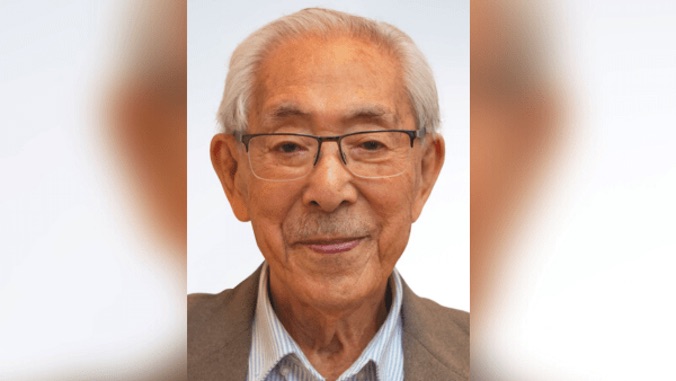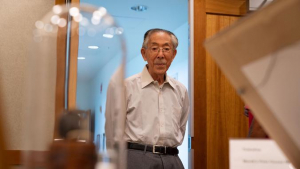
Ryuzo Yanagimachi, professor emeritus of the University of Hawaiʻi at Mānoa John A. Burns School of Medicine (JABSOM) is one of three international recipients of the prestigious 2023 Kyoto Prize. Yanagimachi is the winner in the Biotechnology and Medical Technology category for the impact he’s had on millions of families worldwide through his pioneering work on mammalian fertilization, which led to in vitro fertilization (IVF) advances, giving hope to couples who otherwise would be unable to have children.
Yanagimachi said in a statement, “When I began working as a postdoctoral fellow with Dr. M. C. Chang (the father of mammalian in vitro fertilization), I was interested in analyzing the entire processes of mammalian fertilization.”
After becoming a faculty member of UH, he and his team worked on every step of fertilization by using various animals and techniques.
“Microsurgery was one of the techniques we used to understand ‘hidden’ potentials of sperm and eggs. Many years later, clinicians found that microsurgical injection of a single sperm into an egg is most effective when there are male infertility issues. Although I was rarely directly involved in clinical investigations, I am very happy that some of the work we did played a role in bringing joy to many infertile couples,” he said.

Kyoto Prize officials wrote that Yanagimachi demonstrated a method for in vitro fertilization in mammals, expanded our insights into the fertilization process and further developed the microinjection technology by innovating the intracytoplasmic sperm injection (ICSI). He has made significant contributions to the development of essential assisted reproductive technologies in modern society through both basic research and technological development.
Cumulina, the first cloned mouse and the first cloned mammal in the United States developed by Yanagimachi and his team, was recently sent to her new home at the renowned Smithsonian’s National Museum of American History in Washington, D.C.
Yanagimachi joined UH in 1966. He was an anatomy and reproductive biology professor at JABSOM and founded the Institute for Biogenesis Research (IBR) in 2000. He directed the IBR until 2004. It remains one of the best places in the world to learn about ICSI. He continued teaching until becoming emeritus in 2006. In addition to the Kyoto Prize, Yanagimachi is the recipient of the 1996 International Prize for Biology, Japan’s highest scientific award, and the 1999 Carl G. Hartman Award, the Society for the Study of Reproduction’s greatest honor. He was inducted into the National Academy of Sciences in 2001.
More on the Kyoto Prize
The Kyoto Prize is an international award presented to individuals who have made significant contributions in the fields of science and technology, as well as the arts and philosophy. Each laureate is presented with a diploma, a Kyoto Prize medal and prize money of 100 million yen ($704,840 USD) per category.
Alongside Yanagimachi, mathematician Elliott Lieb from Princeton University and artist Nalini Malani from Pakistan are the other 2023 Kyoto Prize winners.

